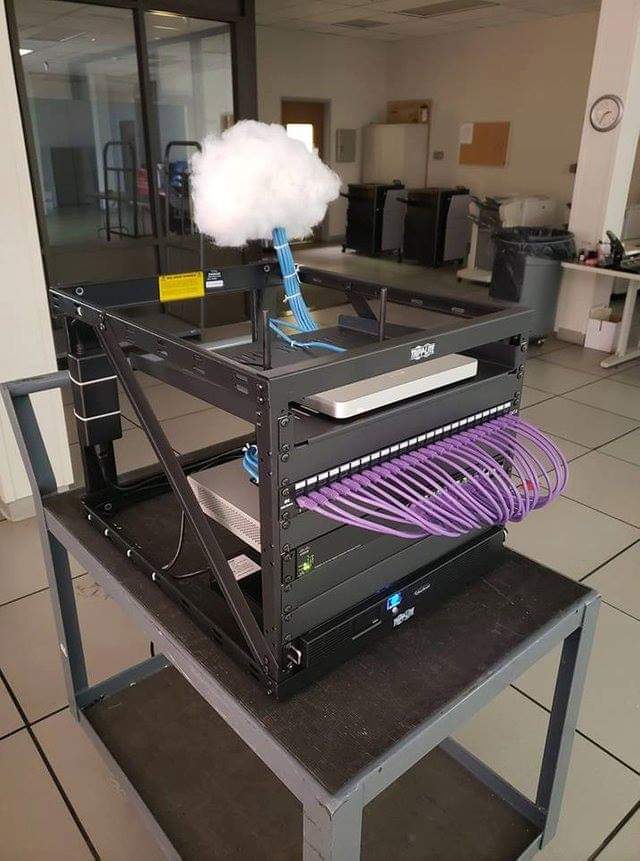yeni bulut sunucularimizi devreye aldik.

yeni bulut sunucularimizi devreye aldik.

askubuntudan copy paste ettim
The commandline version of the libatasmart library used by Gnome Disks is called skdump part of the libatasmart-bin package which is not installed by default. Install by using:
sudo apt-get install libatasmart-bin
Next run the following command to see the SMART information by running the following command in the terminal (replacing /dev/sda by the path to your drive):
sudo skdump /dev/sda
As an alternative the smartctl from the smartmontools package could be used. Install by using:
sudo apt-get install smartmontools
You will then be able to get information on SMART by running the following command in the terminal (replacing /dev/sda by the path to your drive):
sudo smartctl -a /dev/sda
Note that smartctl tends to be overly verbose. Use the -q errorsonly argument to display only errors:
sudo smartctl -q errorsonly -a /dev/sdadu –max-depth=1 | sort -n # Show the size of all the directories in the current directory and sort them by size.
hatta du -h –max-depth=1 | sort -n
[root@isminiyaz log]
# du -h –max-depth=1 | sort -n
2,0M ./directadmin
4,0K ./iptraf
4,0K ./ntpstats
4,0K ./sssd
7,4G .
8,0K ./samba
21M ./sa
30M ./audit
32K ./ConsoleKit
56K ./cups
80K ./prelink
111M ./httpd
554M ./proftpd
698M ./exim
[root@isminiyaz log]
#
php ile mssql sunucuya baglanalim. Centos 7 uzerinde Directadmin icin yazdim.
1- php 5.6 ile FREETDS kullaniyoruz
freetds yi cek
wget wget ftp://ftp.freetds.org/pub/freetds/stable/freetds-patched.tar.gz
freetds yi uygun sekilde kur:
tar zxvf freetds-patched.tar.gz
cd freetds-1.00.109/
./configure –prefix=/usr/local/freetds
make
make install
php configure dosyasini duzenle
nano /usr/local/directadmin/custombuild/configure/ap2/configure.php56
--with-mssql=/usr/local/freetds \ekle
sonrasi bu:
cd /usr/local/directadmin/custombuild
./build php n
2- Php 7.2 icin – Php 7 ile beraber freetds kullanamiyoruz. php destegini kesti.
microsoft kendisi cikardi pdo lib sqlsrv vs vs
php 7.2 icin kurulum su sekildedir. (PECL ile yapicaz)
curl https://packages.microsoft.com/config/rhel/7/prod.repo > /etc/yum.repos.d/mssql-release.repo
yum update
ACCEPT_EULA=Y yum install -y msodbcsql mssql-tools unixODBC-devel
pecl install sqlsrv
pecl install pdo_sqlsrv
nano /usr/local/lib/php.ini
ekle:
extension=sqlsrv
extension=pdo_sqlsrv
kaydet.
service httpd restart
Gule Gule Kullan…
this is youtube re-embed test
no start stop script needed 😀
##Debian / Ubuntu ##INSTALL sudo apt-get update && sudo apt-get install gcc make -y wget https://github.com/z3APA3A/3proxy/archive/0.8.12.tar.gz tar zxvf 0.8.12.tar.gz cd 3proxy-0.8.12 make -f Makefile.Linux sudo cp src/3proxy /usr/local/bin/ ##CONFIG ##NO LOGS - NO SOCKS - NO IP SELECTION ##IPv6 + IPv4 ENABLED nano 3proxy.config ------------------------------------------- nserver 1.1.1.1 nserver 9.9.9.9 nscache 65536 timeouts 1 5 30 60 180 1800 15 60 users username1:CL:password1 daemon log /dev/null authcache user 60 auth strong cache allow * * * * proxy -64 -n -a -p8182 ------------------------------------------- ##START 3proxy 3proxy.config
DONE!
Instalation of IBM DB2 module should be very easy (refering to the installation instructions):
Then in PHP:
<?php
$databaseName = "your_db_name";
$hostName = "your_host_name";
$port = 50001;
$userName = "your_user_name";
$password = "your_password";
$conn_string = "DRIVER={IBM DB2 ODBC DRIVER};DATABASE=$databaseName;HOSTNAME=$hostName;PORT=$port;PROTOCOL=TCPIP;UID=$userName;PWD=$password;Security=ssl;";
$conn = db2_connect($conn_string, '', '');
if($conn) {
echo "Connected!";
db2_close($conn);
} else {
echo "Not connected<br>";
echo db2_conn_errormsg();
}
?>
Whole process with lot of pre-requisites for python is here (it works with little modifications for PHP too).
Hello,
you can fix that problem with an arping:
[root@hedodhedo ~] # arping -s 37.247.112.71 37.247.112.1
ARPING 37.247.112.1 from 37.247.112.71 eth0
Unicast reply from 37.247.112.1 [00:0B:45:80:C0:00] 1.846ms
Unicast reply from 37.247.112.1 [00:0B:45:80:C0:00] 1.483ms
^CSent 2 probes (1 broadcast(s))
Received 2 response(s)
[root@hedodhedo ~]# logout
Connection to 37.247.112.70 closed.
# ping 37.247.112.71
PING 37.247.112.71 (37.247.112.71) 56(84) bytes of data.
64 bytes from 37.247.112.71: icmp_seq=1 ttl=63 time=0.377 ms
64 bytes from 37.247.112.71: icmp_seq=2 ttl=63 time=0.205 ms
— 37.247.112.71 ping statistics —
2 packets transmitted, 2 received, 0% packet loss, time 1000ms
rtt min/avg/max/mdev = 0.205/0.291/0.377/0.086 ms
Kind Regards,
I have a WordPress website on my server. But when I upload its database to live server, I get error
#1273 – Unknown collation: ‘utf8mb4_unicode_520_ci’
Solution:
sed -i 's/utf8mb4_unicode_520_ci/utf8mb4_unicode_ci/g' file.sql
Copy/Paste Information
mysql -u username -ppassword databasename < databasename.sql
netstat -tn 2>/dev/null | grep :80 | awk '{print $5}' | cut -d: -f1 | sort | uniq -c | sort -nr | head